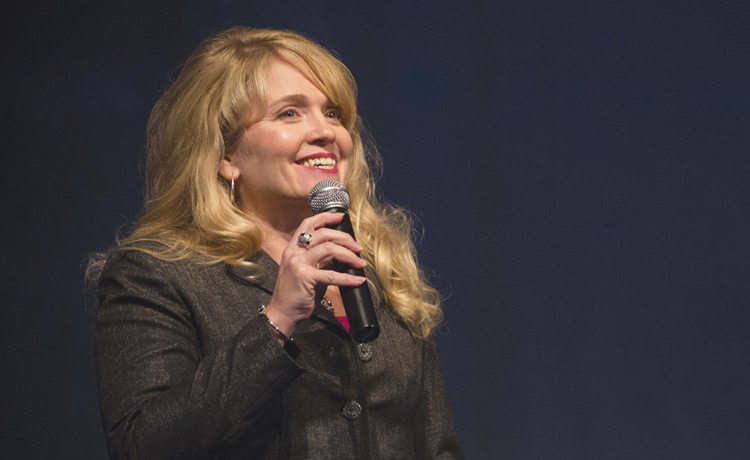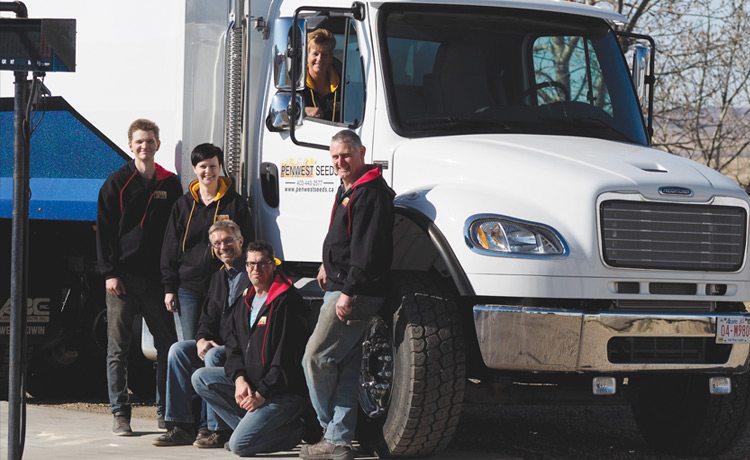Why having an effective website and strong social media connections are important to business success.
_x000D_
These days, having a strong online presence for your company could be compared to a house having great curb appeal._x000D_
_x000D_
It can be the first thing that snags the interest of prospective buyers, but the value of a great website and solid social media connections goes beyond that._x000D_
_x000D_
Shaun Haney is the owner of the Haney Farms, a seed business in Picture Butte, Alta., and is also the founder of realagriculture.com, a website dedicated to exploring issues that impact Canadian agriculture. Having a strong online presence has been key to the growth of his business, Haney says. He warns it’s a strategy that seed companies ignore at their peril._x000D_
_x000D_
“At this point, if you do not have an online presence, you really need to question what your marketing strategy,” Haney says. “For a seed company, whatever social channel you’re choosing — whether it be Twitter, Facebook, Instagram, Snapchat, YouTube or whatever — it’s about having a close connection with the audience that you’re trying to market products. Whether that’s a neighbour or somebody across the country, its critical to be able to have those digital relationships.”_x000D_
_x000D_
Like any successful relationship, it’s important that this connection is not one-sided. Haney cites interactivity as the key to a good online strategy, because it enables businesses to directly engage potential customers by addressing questions or concerns about their products or services._x000D_
_x000D_
“People are looking for much more of an interactive process when they’re doing their research online now,” Haney says. “The information has to flow both ways.”_x000D_
_x000D_
Noted U.S. food and agriculture author and speaker Michele Payn maintains farm-related businesses benefit economically and socially from a strong online presence._x000D_
_x000D_
“Seed businesses and agribusinesses need to engage online and through social media to monitor their brand management, increase their footprint and participate in agricultural advocacy efforts,” she says. “Like a good sales rep, having a solid social media presence extends your reach and grows relationships, offering economic benefits. It allows you to have your voice in the online conversation about genetics and farming. Companies who serve the greater cause of agriculture versus only marketing for their own brand will have a much stronger following, offering social benefits.”_x000D_
_x000D_
_x000D_
Payn notes that a variety of strategies are available to develop an online presence, and says different companies employ different social media channels._x000D_
_x000D_
“For example, Latham Seeds has a blog that includes farmers blogging. Dow AgroSciences targets early adopter farmers on Twitter for advisory groups. Farmers like @TheFarmersLife share drone footage of their fields on Facebook. SaskCanola created a video to tell the farming story on YouTube,” she says. “There is no singular right way to develop a social media presence; you have to know your purpose and target audience, then use the tools to connect those worlds.”_x000D_
_x000D_
Haney uses Facebook and Twitter because it’s the kind of content that matches his business objectives._x000D_
_x000D_
“You just have to choose a platform that you have content for,” Haney says, noting that there needs to be a purpose behind a company’s social media. “Have some guidelines and give your team some context of what you’re trying to accomplish,” he says._x000D_
_x000D_
One way seed companies can actively engage audiences is to use blogs and other online platforms to tell stories about their people and their products — a strategy known as content marketing._x000D_
_x000D_
“Content marketing is an important marketing tool for seed companies or people of any industry,” Haney says. “If you can weave content into your sales process, then I think that also makes you a more effective marketer.”_x000D_
_x000D_
As Payn points out, it’s also important not to overlook the importance of having an eye-catching and engaging website. “I liken it to a spoke and wheel hub; the different spokes help support each other and drive traffic to the hub,” says Payn. “Studies show that websites are still where growers go to find information — so you have to start with a clean website.”_x000D_
_x000D_
Larry Penner, owner of PenWest Seeds based in Three Hills, Alta, recently revamped his company website and is reaping the rewards._x000D_
_x000D_
“The old site lacked professionalism,” Penner says. “When customers from different parts of the country look at your website, it’s important to have one that looks professional and appears like you’re in business for the long term.”_x000D_
_x000D_
Penner also uses Facebook and Twitter. “Definitely there is a benefit — we can see it,” he says. “You try to keep people engaged; that’s the whole idea.”_x000D_
_x000D_
Penner believes the key to engaging customers is lending a personal touch. “If you’re just flogging your products all the time, people tend to tune you out,” he says. “They want to see more than just product information; they want to see a personal side.”_x000D_
_x000D_
_x000D_
_x000D_
Where on the Web
_x000D_














